I Was Given 15 Months To Live — 6 Ways Parents Can Help Their Children Deal With Cancer
Approach a cancer diagnosis as a family.
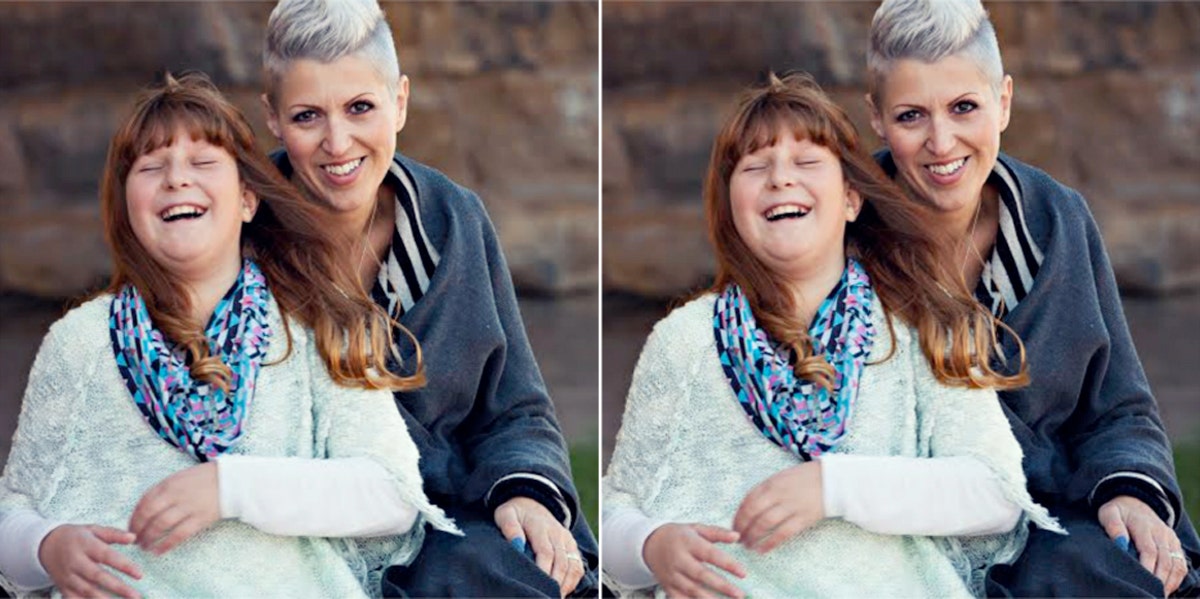 Courtesy of the Author
Courtesy of the Author My husband and I were ecstatic — after seven years of marriage, we made the decision to start a family.
We had no problem getting pregnant, and my pregnancy was surprisingly really easy. I had very little morning sickness, and I only gained 5 pounds. This pregnancy thing was a piece of cake!
But I never thought I would eventually have to learn how to talk to kids about cancer.
I worked right up through my due date and finally got induced. That is when the idyllic pregnancy took a turn for the worst.
My water had broken and upon the nurse checking me, she found that my baby was coming out rear end first. She was a frank breech. I was rushed in for an emergency C-section and within 20 minutes our baby girl was brought into our world.
The look on her face was one of indignation and bewilderment, but immediately we fell in love with her serious little face and wiggling body.
After seven years of waiting, we finally had our little family. I wish we could have stayed in that safe hospital bubble forever, but life had another path for us.
When Lily was just 3 1/2 months old, I got sick. I had no energy, had a hard time breathing, and was losing weight at an alarming rate of five to seven pounds a week.
I called my doctor and he noted that the hospital notes had said I was anemic, so he put me on iron and told me to call in a week if I wasn't better. During that week, my health continued to decline.
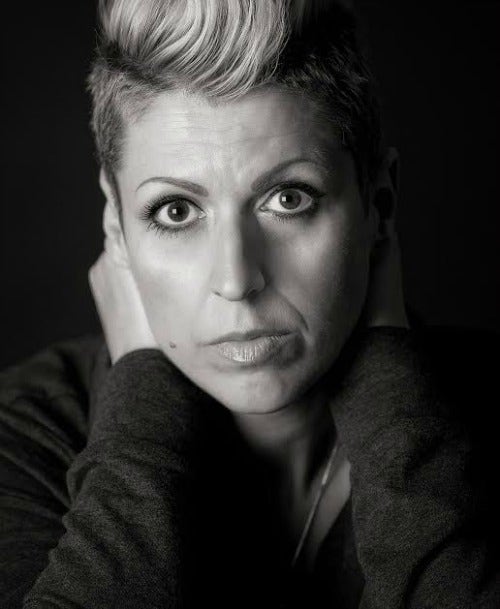
Photo: Author
I went back to my doctor the next week and had a barrage of tests done, including X-rays and blood work, where he found fluid around my left lung. I was sent to a specialist to have the fluid drained, and further testing was done to see what was causing it.
My answer came on November 21st, at 1:30 in the afternoon. I had malignant pleural mesothelioma and had just 15 months to live.
It’s been 14 years since that fateful day and I’m happy to say the doctors were wrong about my prognosis. I am one of the lucky ones who was able to find a specialist, and through invasive surgery, aggressive chemo, and radiation, I’m still here.
As a cancer survivor, I’ve become an advocate through multiple mesothelioma organizations to share my story, raise funding and awareness for cancer research, and fight to ban asbestos — the cause of mesothelioma — in the U.S. to help make sure no one else has to go through what my family and I went through.
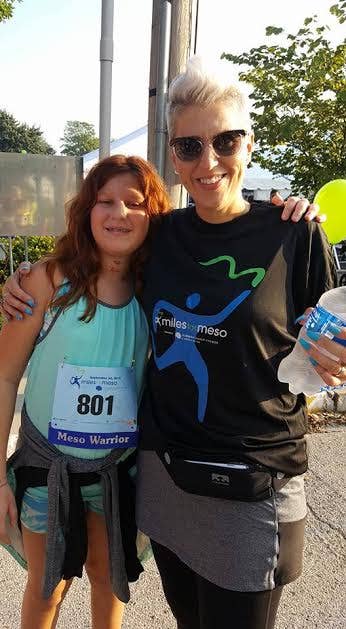
Photo: Author
When I share my story with people, so many of them ask about my daughter and how she handles the knowledge of my diagnosis.
Since she was just a baby when I was sick, she doesn't know any different. All she knows is life with me as a cancer patient.
How to Talk to Kids About Cancer
Through the years, we’ve navigated the ups and downs.
We've garnered some knowledge and resources in the hope it will help others when facing difficult conversations of their own.
1. Trust your gut.
You know your child or children better than anyone and you will know how much to share and how much to discuss. Each child is different, and it may take different approaches with each one to talk to them about the illness.
Some kids are good with knowing more, while others may do better on a bit by bit basis.
Lily is an "old soul" — she always understands far more than I give her credit for, and I have been able to really discuss the illness in-depth with her because of it.
2. Get everyone in your circles on the same page.
Make sure all extended family members who are in contact with your kids are on the same page and use the same language as you when talking about your illness.
If there is something you don’t want the kids to know, make sure grandparents and aunts and uncles know so they don’t accidentally share something with you didn’t want to be shared.
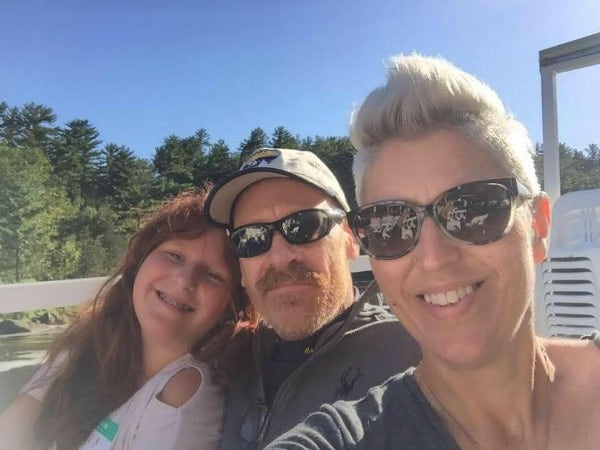
Photo: Author
This is also so important to build trust within the family because if your child senses that everyone is speaking the same language they will feel safe talking to anyone about it.
3. Tell teachers and daycare providers.
It was so important to let Lily’s teachers know when I had to leave town for my biannual scans; they knew that if she was unusually quiet or reserved, there was a reason for it. I went so far as to let the school nurse know and to handle the situation as needed.
Telling teachers and school staff also gave Lily an extra layer of security during an uncertain time. Many times, kids will act out at school because of fear for their ill parent, and by letting the staff know, they can help your child work through some of those emotions.
4. Let your children care for you.
Many kids feel powerless or helpless when they see their parents so sick.
I have found that my daughter feels so much better when she can “take care of me.” Even if it is just to sit and snuggle together while watching a movie, or getting a glass of water, giving the kids a sense of control at a time when so much is out of control is a good thing.
When I was recovering from my surgery, I stayed in a group home with other caregivers and patients. One family has always held a special place in my heart. The dad was in the hospital with mesothelioma, the mother and daughter were staying at the same home.
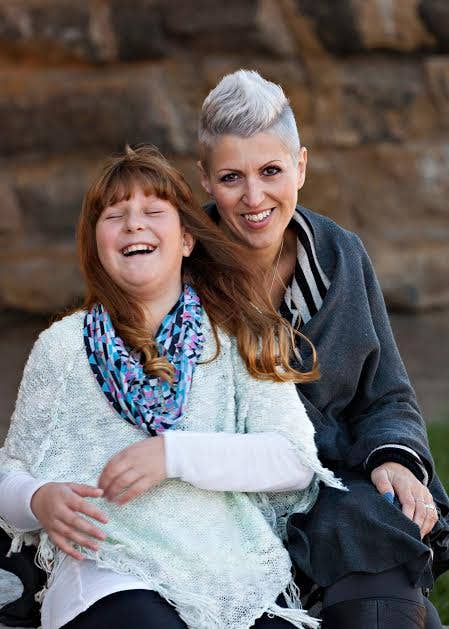
Photo: Author
Lisa included her daughter, Emma, in the care of her dad, and when the time came for him to go home, they could both change his dressings, administer meds, and care for him so much better.
Emma was so impacted by this experience, she went to nursing school and now is an RN, helping others through much of the same things her father went through. It has a lasting impact.
5. Allow your children to feel afraid.
We as patients put on this front so often that all is fine, and we do a great disservice to our kids by not being honest with them.
I’ve had some pretty serious heart to heart discussions with my daughter about cancer, illness, and death. It’s not comfortable, but I let her lead the conversation.
One day, as I was getting ready to leave for my biannual scans, Lily started complaining that her tummy hurt. Taking this as a cue that she needed to talk, I sat down next to her and did all the mom things. I felt her forehead and cheeks to see if she was feverish. She wasn't, so I then asked where her tummy hurt.
She looked up at me with her huge brown eyes, her bottom lip trembling, and squeaked out that she was afraid my scans were going to come back bad. I just hugged her close and reassured her that the reason I flew all the way across the country for scans was that my doctor was the best in the world, and if anything did happen to be wrong, he would be the best person to help.
I acknowledged her fears and my own, and together we were able to work through them.
6. Look for resources outside of your circle.
There are literally hundreds of agencies and non-profits that are around to help families in a time of crisis with cancer.
Two outstanding places are Camp Kesem for kids — which helps kids deal with a parent’s diagnosis and surrounds them with other kids in similar situations — and Gilda’s Club, named after famed Saturday Night Live actor Gilda Radner who succumbed to cancer.
Gilda’s club has support groups, classes, and programs for the entire family to help during times of crisis and beyond.
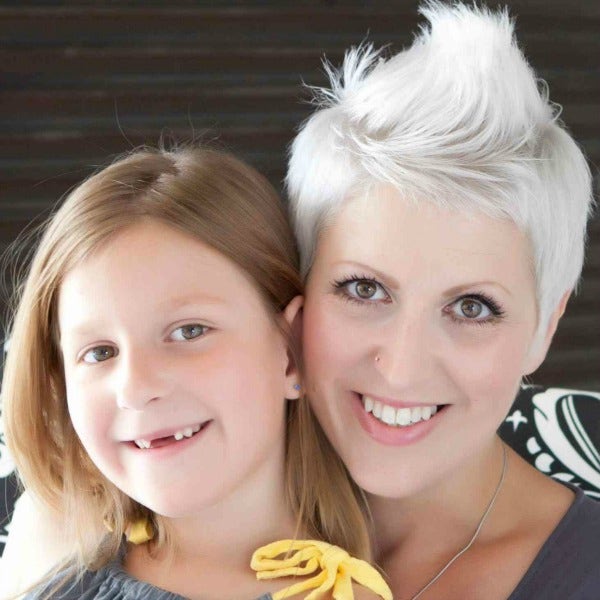
Photo: Author
Many local cancer centers have support groups as well, so ask your provider or social worker for resources.
Facing a cancer diagnosis on its own seems like an insurmountable task. Add children into the mix and it can seem impossible.
Take a deep breath and know you can do this. Kids are resilient and may surprise you with how well they adjust to the new normal.
So just trust your gut and know that you’ll be okay.
Heather Von St. James is a 14-year survivor of the rare and aggressive cancer mesothelioma. As a survivor, she uses her platform to advocate for other mesothelioma patients and their families. Follow her on Facebook and Twitter, or visit her blog at the Mesothelioma Cancer Alliance.
